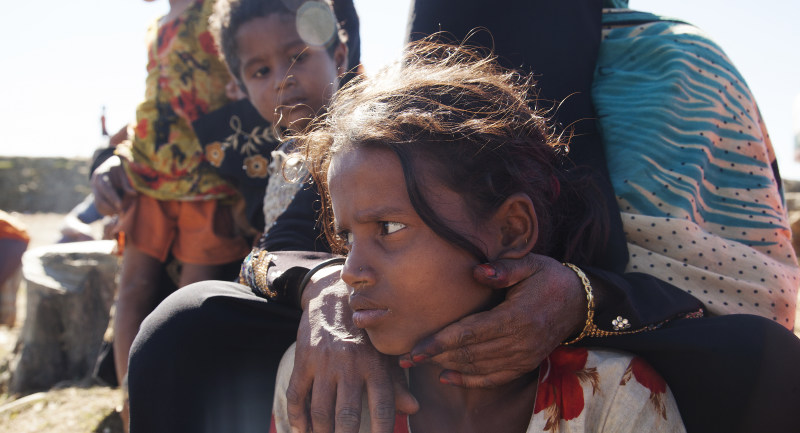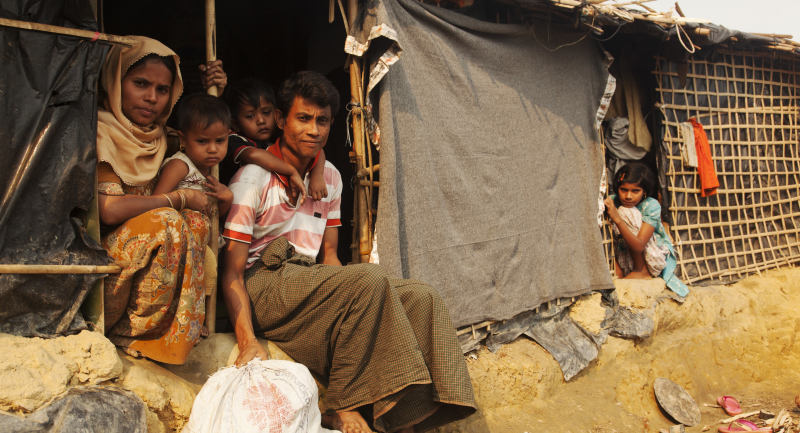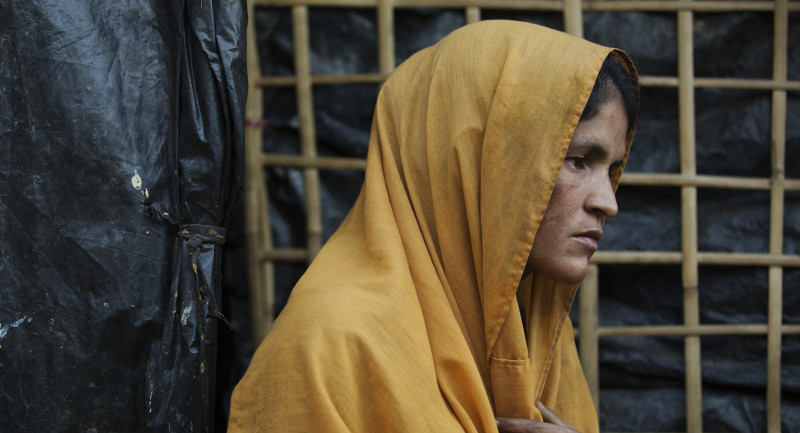Shawkat's story
15 May 2020

The Rohingya people have faced decades of systematic discrimination and violence in Rakhine State, Myanmar. Despite being in the country for centuries, Rohingya are not recognised as citizens or an ethnic group. This is following a law that was passed by the Myanmar government in 1982, which effectively rendered them stateless.

A rapid increase in targeted violence against the Rohingya since 2012 has meant that tens of thousands of people have fled Myanmar. Many men, women and children have been trafficked and sold into slavery on fishing boats and plantations in neighbouring countries.
And more than a million Rohingya now live in cramped camps in Bangladesh - hungry, destitute and reliant on humanitarian assistance to survive. After everything they have been through, including Cyclone Amphan, one of the worst in Bangladesh's history, Rohingya refugee camps in Cox's Bazar now have confirmed cases of coronavirus.

Shawkat Ava, Kutupalong Refugee Camp in Cox’s Bazar, Bangladesh
Shawkat Ava is 37 years old and lives in Kutupalong refugee camp in Bangladesh. It is the world’s largest refugee camp and is where SCIAF is assisting vulnerable people with essential food, water and medical care.
Shawkat and her husband were rice farmers. They had to flee with their two young children one night when the Myanmar military attacked their village. They later lost both of their children to hunger and malnutrition.

"We were preparing our field for rice but had to leave everything behind. The military attacked us in the night.
"We saw everything they did. Our village was set alight. They killed our neighbours. They asked boys who were around 10 and 11 years old to stand in a line. Then they chased them with machetes and killed them all.
"One old neighbour of ours was shot. They then attacked him with a machete and burned him alive. He was just an old man."

Shawkat SCIAF project participant
"Throughout the days we spent fleeing, I remember it raining all the time and always being wet and cold. I shivered all the time. It made me sick. I also broke my hand when I fell in the forest.
"We were hungry for many days when we first escaped and spent around 15 days in the forest without food or water. When we reached the border, we were robbed of any valuables we had on us. We were left with nothing.
"We were hungry, thirsty and ill by the time we arrived at the camp in Bangladesh. We received help from the community here and SCIAF helped us with food, water and cooking utensils. These things are very useful - more than money itself. These things are helping us more than anything.
"My parents died on the journey here when they crossed the river from Myanmar. So now, I always try to help old people around us in the camp by giving them food, whenever I can.
“I don’t want to go back. They will kill us.
“But if the Bangladeshi government sends us with a proper agreement to help protect us then we would go. We are still very afraid.
“I am sick a lot. Our neighbours in the camp are kind and sometimes help but everyone here has their own problems. Life is difficult for us all.”

Many refugees like Shawkat live in cramped conditions with no access to clean water and healthcare. They are unable to self-isolate, wash their hands to keep safe and seek medical care when they fall ill.
Having seen how the virus infection rates develop, we know the rate of infection in refugee camps will be devastating.
SCIAF is working hard to ensure poor and marginalised people like Shawkat, get the help they need as the coronavirus outbreak takes hold. Despite the lockdown, together with our local partners we are providing urgent food, water and medical assistance to vulnerable people and are putting in place measures to help minimise the spread of the virus.
Support us to help them through this crisis.
When you give to our Coronavirus Appeal we'll use your donation to help people living in poverty wherever the need is greatest. Your gift will help communities to protect themselves from the coronavirus and support our work helping the most vulnerable to survive and thrive.

This week marks the end of Caritas' global campaign on migration, Share the Journey.

Fadia, along with a group of dedicated women, is committed to rewriting Syria’s one-dimensional narrative of war and pain.